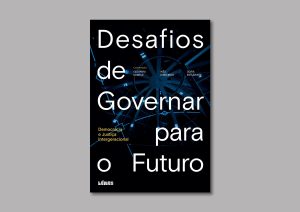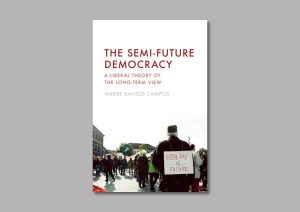Contemporary liberal democracies’ bias towards the short term exists as a phenomenon. Current societies face severe problems regarding the far-off future. These problems are so urgent that not facing them in the present may impact political communities very negatively, even to the point of extinction. Climate change is the most pressing, albeit not the only one, of them. Many practical experiences and theoretical suggestions have endeavoured to enlarge the temporal scope of certain democratic foundations, for instance by claiming that future persons have rights, that they should be represented in democratic institutions, that there are limits to what each generation can do vis-à-vis the future, and that members of future generations should be treated as equals. These assertions, however, seem often to be at odds with some of the elements contained in the basic core of contemporary liberal democracies since they imply either a reconfiguration of democracy and an imaginative task of institutional design, or the replacement of democracy altogether with different kinds of political regimes.
This project focuses on the possibility of reconfiguring certain key concepts originated in modern democratic theory, most forcefully by expanding their timescale in favour of the far-off future. This involves exploring the cross-temporal range of the concepts of rights, representation, sovereignty and egalitarianism in such a way as to assess their viability in a world order that must overcome presentism to solve its most pressing problems without being willing to give up its fundamental liberal-democratic culture. The main hypothesis to be tested is that of determining whether contemporary democracies’ bias towards the short term is systemic and necessary to the liberal democratic project, or whether they already contain the conceptual and institutional instruments that allow for some sort of long-term strategic decision-making in favour of the far-off future. In order to pursue this hypothesis, the research team comprises almost all Portuguese academics working on the topic of intergenerational justice, as well as internationally acclaimed experts on this topic. A second line of inquiry aims to foster the still very incipient debate on intergenerational justice in the Portuguese academic community and the Portuguese public sphere, by measuring the degree to which specific areas of public policy affect the future positively without sacrificing present democratic values. To pursue this hypothesis, the project will establish contacts with stakeholders and political institutions, and, most importantly, it will allocate the bulk of the available research funds to individual grants so as to increase the amount of academic work produced in Portugal on this topic.
Catarina Botelho
Charlotte Unruh
Diogo Pires Aurélio
Iñigo Ricoy
Malte Jauch
Michael Rose
Pablo Magaña Fernandez
Ramiro de Ávila Peres
Roberto Merrill
Zachariah Tailor













